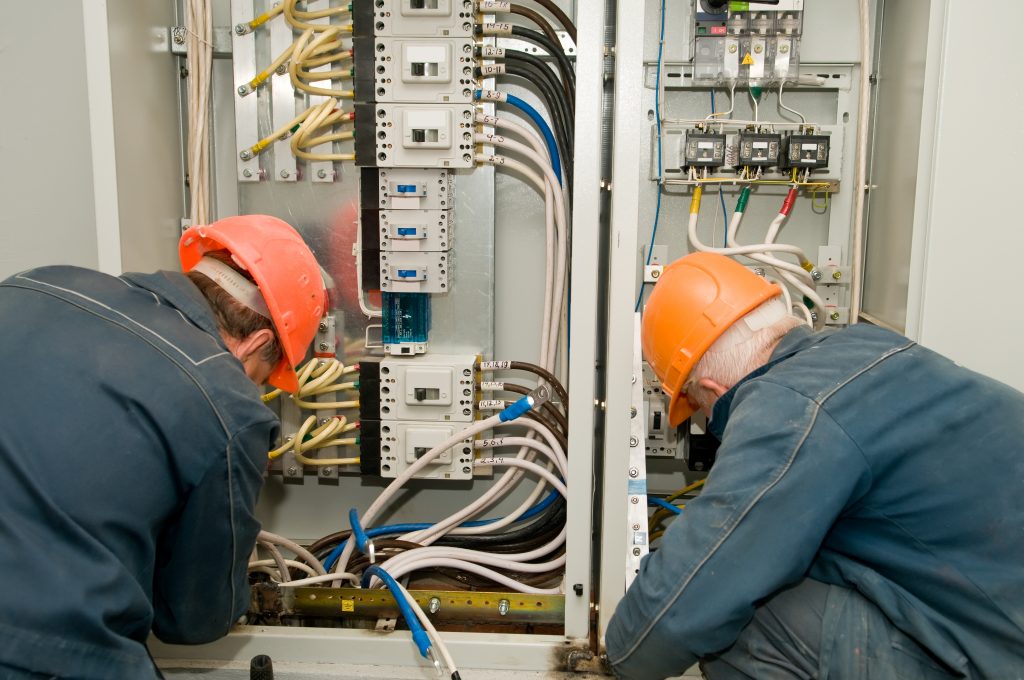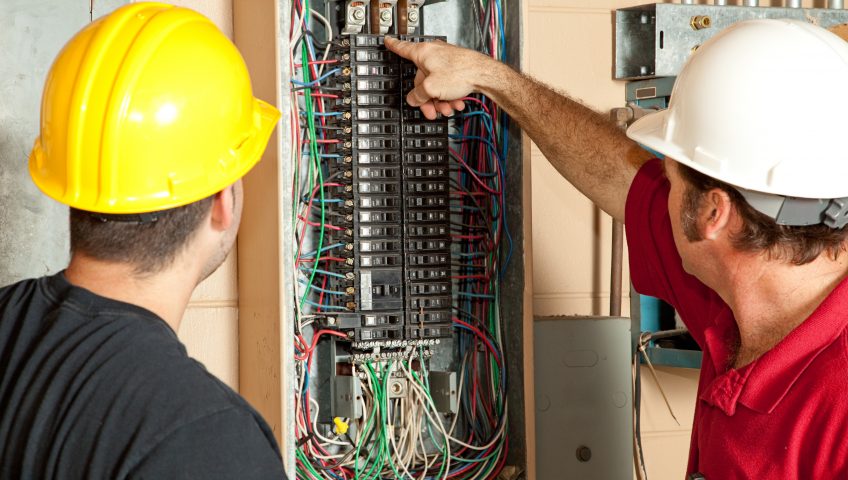Navigating the world of electrical work can sometimes feel like deciphering a puzzle. Two of the most commonly used terms in the industry are “electrical contractors” and “electricians.” At first glance, they might seem interchangeable, but understanding their differences can play a pivotal role in making the right choice for your electrical needs. In this post, we’ll delve into the nuances that distinguish these roles, providing clarity for your next project.
Scope of Work
- Electrical Contractors: Electrical contractors are businesses or firms responsible for designing, installing, and maintaining electrical systems. They work on various scales, from small residential projects to sprawling commercial establishments or even larger infrastructural developments.
- Electricians: Electricians, on the other hand, are the trained professionals who execute the tasks. They work hands-on, dealing with wiring, installations, repairs, and diagnostics. Electricians can work independently, or they might be employed by electrical contractors.
Level of Responsibility
- Electrical Contractors: These entities take on the overarching responsibility of a project. This includes project management, ensuring safety standards, procuring materials, and coordinating with other stakeholders like architects or property managers.
- Electricians: Their responsibility is more defined, primarily centered around the task at hand – be it installing a lighting fixture, wiring a new room, or fixing a malfunction.

Licensing and Qualifications
- Electrical Contractors: To operate as an electrical contractor, one typically needs a business license and often a special contractor’s license. This assures clients that the contractor is equipped to manage large-scale projects and has the necessary insurance in place.
- Electricians: An electrician needs a personal license, which is acquired after rigorous training, apprenticeships, and examinations. This license is a testament to their skill set and understanding of electrical work.
Specializations
- Electrical Contractors: Some electrical contractors, like ROS Electric, specialize in specific areas such as generator installation services. These specializations can be beneficial for clients looking for expertise in particular projects.
- Electricians: While electricians can also specialize, their focus is often on specific types of tasks. For instance, one might be especially adept at home automation, while another excels in industrial machinery.
Scale of Operations
- Electrical Contractors: Contractors usually have the bandwidth to undertake multiple projects simultaneously, thanks to a roster of electricians and resources at their disposal.
- Electricians: An independent electrician might be limited to a few projects at a time, given the hands-on nature of their work.
Call ROS Electric for All Your Electrical Contracting Needs
Now that we’ve outlined the differences, it becomes clearer how these two roles complement each other. An electrician is your go-to for the nitty-gritty of electrical work, whereas an electrical contractor, like ROS Electric, provides comprehensive solutions, managing the project from conception to completion.
If you’re in the market for electrical services – whether you need a simple repair or a more complex installation like a backup generator – consider reaching out to ROS Electric. With our commitment to quality and a team of dedicated professionals, we bridge the gap between electrical contractors and electricians, offering you the best of both worlds. Ready to power up your project?


Write a Comment